The content of the article
Cats are small predators with a good appetite. They usually eat often in small portions, or rarely and very much. Owners of home fluffies must be sure to observe their nutrition.
The main indicator of a cat’s health and well-being is a good appetite. However, there are cases when you can notice that the cat fell out of love with the usual treats or even started to refuse any food. In cases where the cat's food intake has decreased markedly or the pet refuses to eat anything at all - it’s time to sound the alarm, because the consequences of procrastination can be very sad. To provide timely assistance to a cat that refuses to eat, you need to evaluate the condition of the animal and understand the true causes of what is happening.
Reasons cats refuse to eat
If the main cause of the cat’s refusal to eat is the disease, then this is not surprising, but the pet may not want to eat, being completely healthy. Most likely, this is due to the fact that the cat does not like the food that it is fed. However, this behavior may indicate that the animal expresses its protest. Therefore, you need to carefully monitor the pet in order to understand the reasons for this behavior.
If the cat often walks on the street, then, most likely, it simply finds food on the side and simply does not feel hunger at home. On the street, cats often, succumbing to the instinct of a hunter, catch rodents or birds.
Metabolic disease
As a rule, urban cats living in apartments and never going outside suffer from this. Obesity is a fairly common problem in felines. Cats can eat a very large amount of food at one time and cannot control themselves. Therefore, the main task of the owner is to build the correct diet of the animal and prevent its overfeeding.
Fasting days
Sometimes cats on a purely instinctive level arrange so-called fasting days to cleanse their body of harmful substances. In these cases, starvation of the animal can be caused by the following reasons:
- Problems in the gastrointestinal tract. This happens in those cases when, after eating, the animal immediately began to show high physical activity.
- After overeating, the animal may also need to unload the body.
- The cat ate hard-to-digest food.
- The animal thus protests against one of the owners, or in this way tries to attract attention. Sociable cats, who love to be in society and be the center of the universe, are subject to this behavior, as a rule.
If a pet refuses to eat a day, then you do not need to sound an alarm. Just watch. If this lasts much longer, then a visit to the veterinarian is mandatory and should not be delayed.
Cat fasting should not be more than 24 hours. Even during this time, some organs of the animal may begin to malfunction. For example, the liver. This is especially noticeable in obese cats. They have fatty degeneration. Therefore, it is important for the pet owner to remember that, even by putting his cat on a diet, it is impossible to completely interrupt the nutrition. Everything should happen gradually, and nutrition should remain regular. Otherwise, when the cat suffers from anorexia, it is forced to eat.
Animal instincts
Cat appetite may well be reduced for physiological reasons during sexual activity. Usually during the rutting season the animal is concentrated on an object of the opposite sex and practically does not think about food.And cats in heat or a few days before her, too, do not experience a special passion for the usual snacks.
Stress
Cats are animals that love a certain way of life. They are very skeptical of any changes. The animal can get used to the rearrangement in the house for a long time, and also feel deep resentment when the owners decided to have a new pet or even get a baby. If the beloved owner is not at home for a long time, then the cat may well become depressed and refuse to eat.
Cats are also very sensitive to any changes in mood in the family. If a quarrel has occurred between households, be sure that the animal will be far from indifferent. It is possible that after a couple of hours you will reconcile, and your beloved fluffy will depart from the shock for some time. Often the animal begins to feel sad when moving to a new place of residence. But, as a rule, after a while, the animal returns to normal. The main thing is that there should be loving hosts nearby.
The most interesting thing is that a cat’s refusal to eat can even be caused by a change in the usual bowl of the animal or moving it to another place. Cats also really do not like to eat in bright light, noise and a large number of people. All this can lead to quite severe stress of the animal. To save your pet from shock, you can just play with him or caress. Positive emotions will benefit him, and soon the cat will feel good. You need to be very attentive to the hunger of the animal, because it can be a witness to serious health problems.
How Pregnancy Affects Cat's Appetite
Owners of animals need to be extremely attentive to the condition of a pregnant cat, because toxicosis is possible in the early stages and appetite worsens for a couple of hours. Before giving birth, the cat may also refuse to eat.
After the birth has passed, the cat’s condition will slowly recover. You should not sound the alarm if after childbirth she eats nothing for a day, but at the same time the kittens feel good. In that case, you do not need to force-feed the animal yourself. Refusal of food can be caused by the following reasons:
- the cat does not want to leave the newborn babies alone;
- stress for the cat's body, especially if it is the first birth;
- childbirth was very difficult, and the animal needs some time to recover;
- if the cat ate one or more afterbirths during childbirth.
Also, an animal’s refusal of food may be due to an operation postponed the day before. Since anesthesia had to be resorted to during the surgical procedure, it can take 1 or 2 days to leave the animal. During this period, the coordination of movement is disturbed, and appetite may be completely absent.
If you decide to change the animal feed, then be sure to see how the cat will perceive the new food. If the pet does not like the new diet, then you must definitely make a replacement, but in no case try to force-feed the animal. Refusal of food can also be caused by stale or poor-quality food.
Video: why does the cat refuse food?

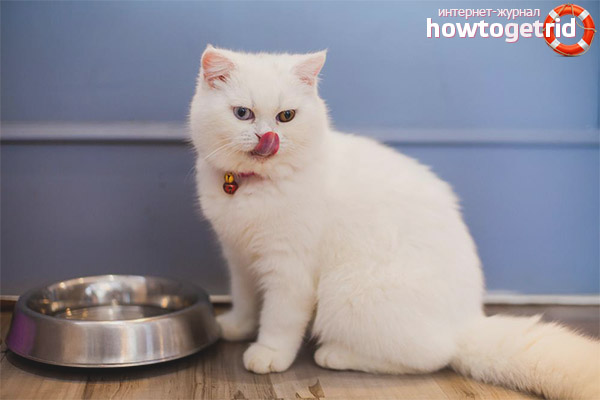
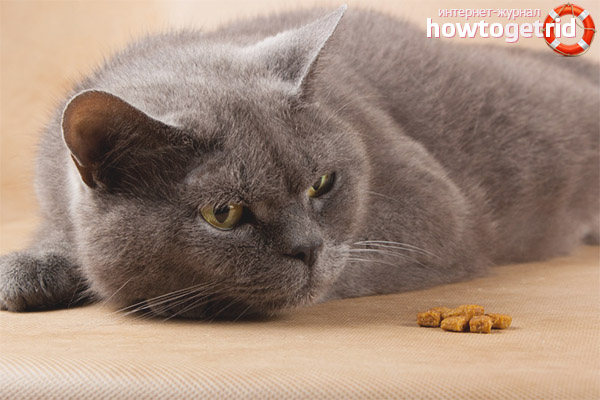
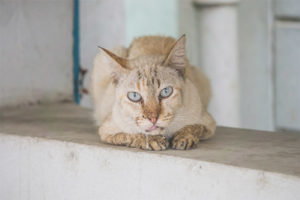
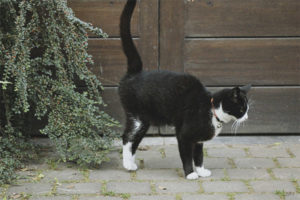
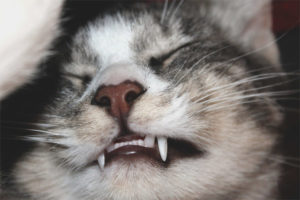
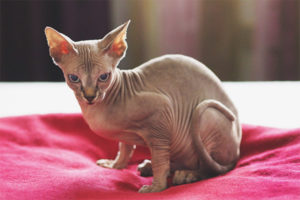
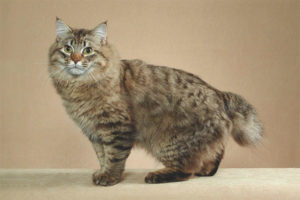
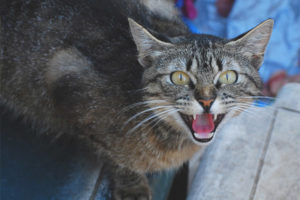
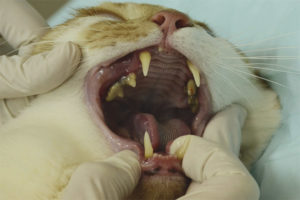
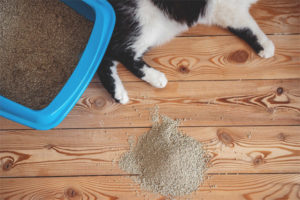
Submit